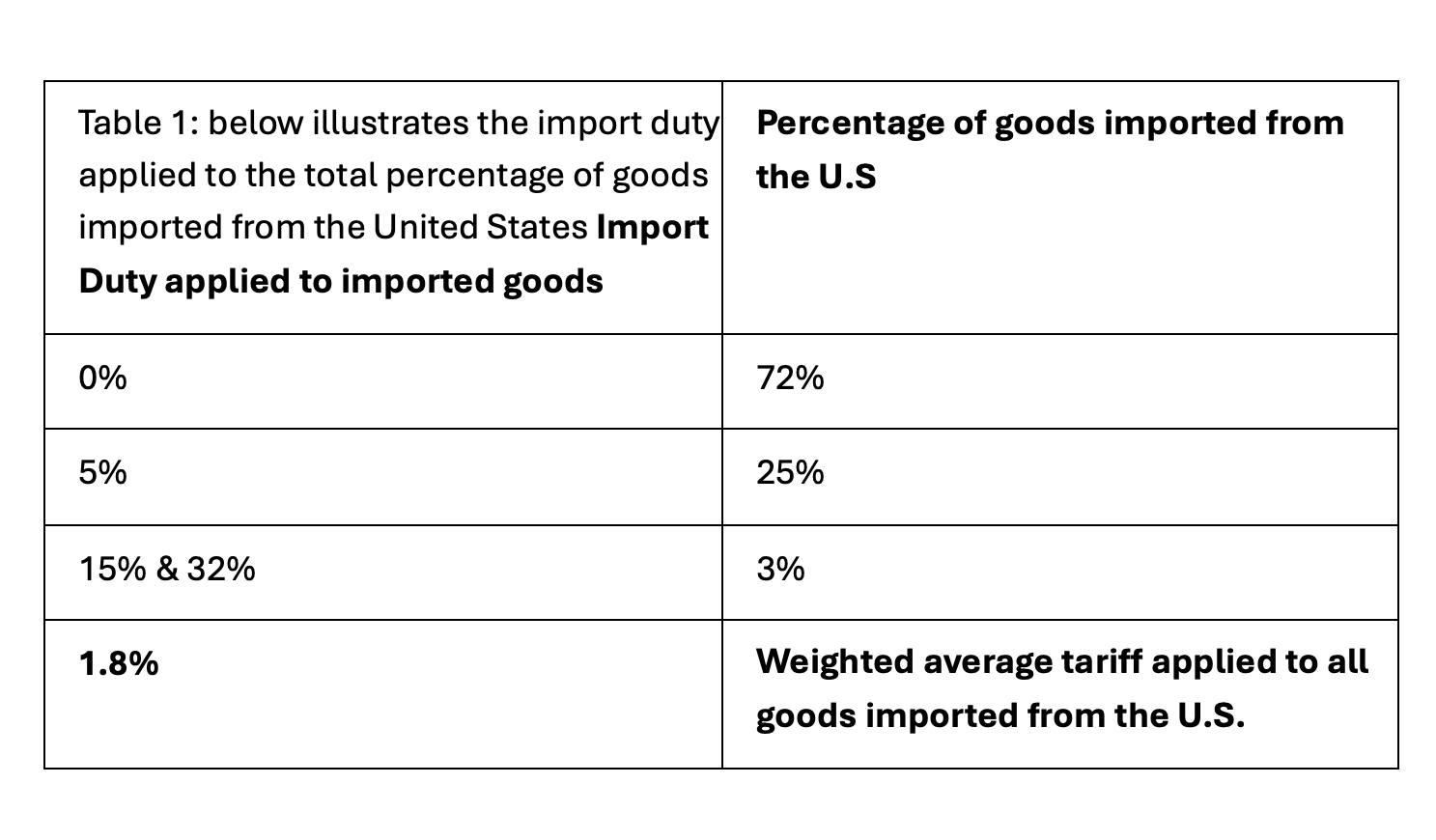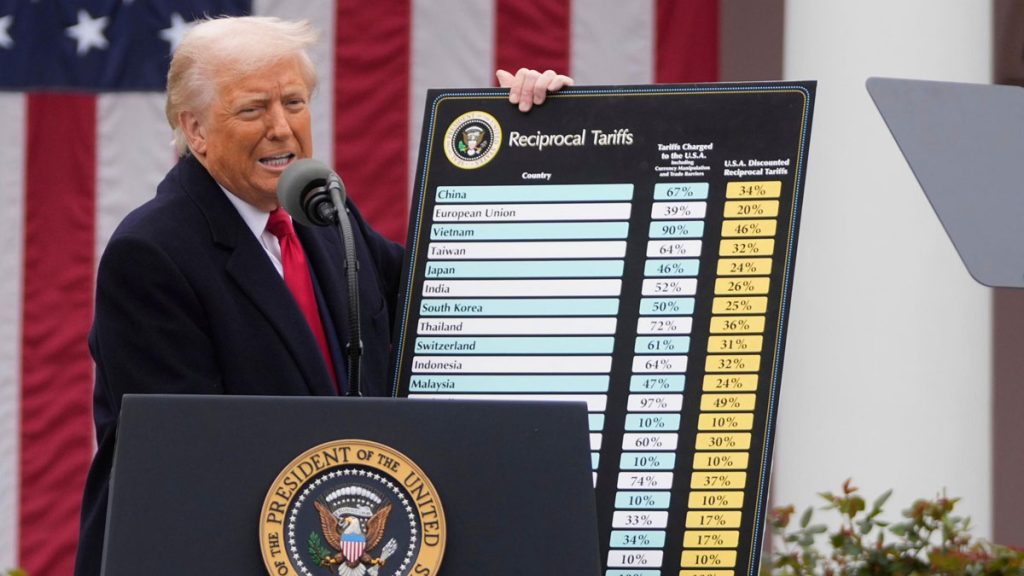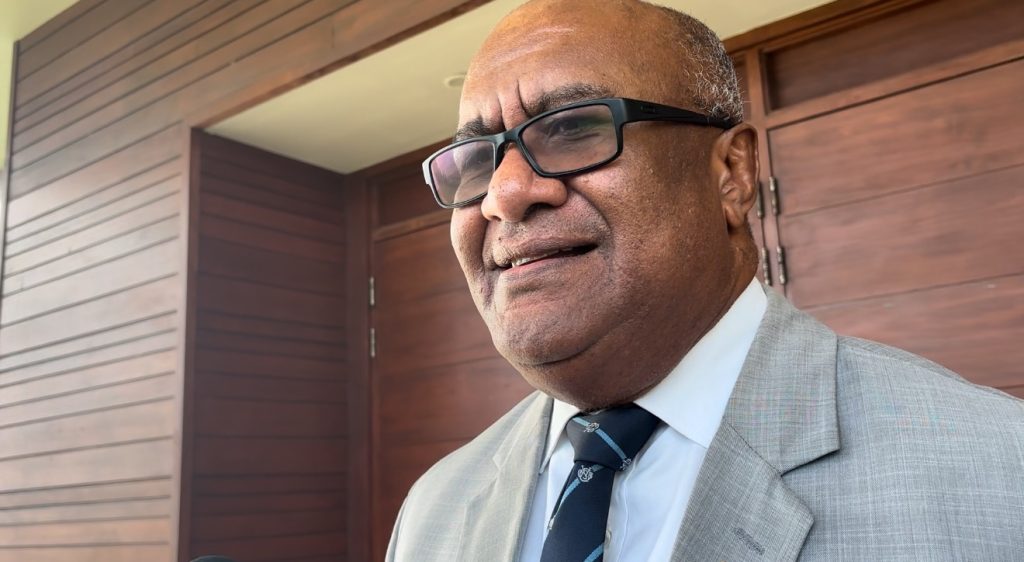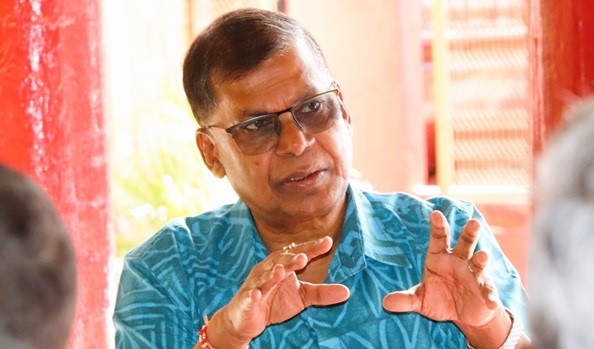
Fiji and other Pacific countries will now face higher export charges as the U.S introduce reciprocal tariffs.
Under the new policy announced by President Donald Trump, Fiji will face a 32 per cent tariff on its exports to the US.
Trump laid out the US reciprocal tariff rates that more than 180 countries and territories will face.

Fiji imposes a 63 per cent tariff charged to the US, including currency manipulation and trade barriers.
The Ministry of Trade, Co-operatives, Micro, Small and Medium Enterprises, and Communications is concerned with the recent tariff measures announced by the United States, which include a 32% tariff on Fijian exports.
These tariffs are expected to go into effect with a 10% baseline tariff on all countries effective from this Saturday and all countries with individual higher reciprocal tariffs, including Fiji, will take effect as early as next week Wednesday.
The Ministry says that while the United States remains one of Fiji’s key trading partners, these new trade restrictions pose a significant threat to Fijian industries and businesses that export to the United States.
Deputy Prime Minister and Minister for Trade Manoa Kamikamica said he is concerned about the tariff introduced by the U.S but adds that it is too early to be panicking at this stage.
“We are a export positive trade surplus country to the U.S, so we do more exports than imports, and we need to understand the coverage of the tariffs. I mean 32 % is very high and will impact businesses if it remains.”

In response, the government is actively engaging with U.S. Government counterparts through diplomatic and trade channels to seek clarity on these measures and explore options to mitigate their impact.
This includes understanding how the 63% “Tariff Charged to the U.S., including Currency Manipulation and Trade Barriers” was calculated by the U.S. Government.
Fiji imposes less than 2% import duties on average on all U.S. imports.
The Ministry adds that this reciprocal tariff will have a direct negative effect on Fiji’s resource owners, rural population, and smallholder farmers that benefit from Fiji’s exports to the U.S.
Fiji’s exports are primary products such as fish and agricultural products, including kava, turmeric, and ginger, that do not compete with U.S. industries but rather complement them.
The Trade Ministry adds that removing these tariffs would allow American businesses and consumers continued access to high-quality, sustainably sourced, natural Fijian products that do not interfere with U.S.-grown and manufactured products.
Meanwhile, Deputy Prime Minister and Minister for Finance, Professor Biman Prasad, says the United States is an important trade partner for Fiji, accounting for around 10 percent of total trade.

The US is also an important source market for Fiji’s tourism (10 percent), remittances inflows (approx. 30 percent) and a key development partner for the last many decades.
Fiji has had a trade surplus with the US.
Our exports to the U.S were just below $500m for the past 3 years, while imports grew from $190m in 2022 to $425m in 2024.
The trade surplus was $293m in 2022 and declined to $63m last year.
Major imports from the US include medical equipment, aircraft parts, machinery and electrical equipment.
Fiji has 4 rates of import duty: 0 percent, 5 percent, 15 percent and 32 percent.
Of the total value of imports from the U.S last year, 72 percent were at zero import duty, 25 percent imports at 5 percent, and less than 4 percent imports at 15 percent and 32 percent.
Prasad adds that while 96 percent of U.S imports into Fiji attract either zero duty or just 5 percent, the imposition of a 32 percent across-the-board tariff on Fijian exports into the U.S is quite disproportionate and unfair.
“Nonetheless, we are still trying to get more details on the exact rationale and application of the newly announced retaliatory tariff by the US and will work with our key stakeholders and US counterparts to get this resolved.”